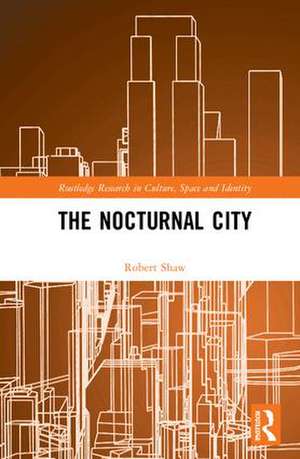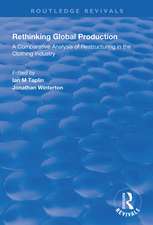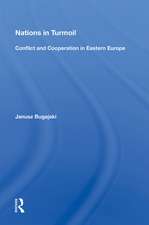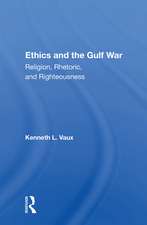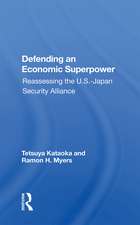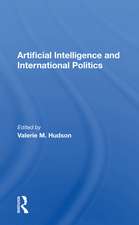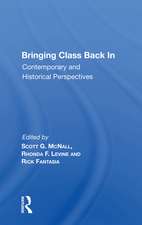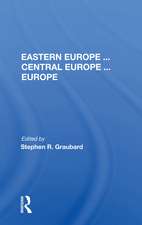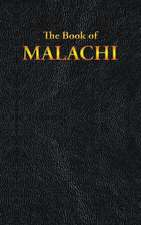The Nocturnal City: Routledge Research in Culture, Space and Identity
Autor Robert Shawen Limba Engleză Hardback – 20 feb 2018
This book looks at the relationship between night and society in contemporary cities. It identifies that while theories of ‘planetary urbanization’ have traced the spatial spread of urban forms, the temporal expansion of urban capitalism has been less well mapped. It argues that, as a key part of planetary being, understanding what goes on at night in cities can add nuance to debates on planetary urbanization.
A series of practices and spaces that we encounter in the night-time city are explored. These include: the maintenance and repair of infrastructure; the aesthetics of the urban night; nightlife and the night-time economy; the home at night; and the ecologies of the urban night. Taking these forward the book will ask whether the night can reveal some of the boundaries to what we call ‘the urban’ in a world of cities, and will call for a revitalized and enhanced ‘nightology’ to study these limits.
| Toate formatele și edițiile | Preț | Express |
|---|---|---|
| Paperback (1) | 379.48 lei 6-8 săpt. | |
| Taylor & Francis – 31 mar 2021 | 379.48 lei 6-8 săpt. | |
| Hardback (1) | 995.88 lei 6-8 săpt. | |
| Taylor & Francis – 20 feb 2018 | 995.88 lei 6-8 săpt. |
Din seria Routledge Research in Culture, Space and Identity
-
 Preț: 295.98 lei
Preț: 295.98 lei -
 Preț: 288.41 lei
Preț: 288.41 lei -
 Preț: 326.78 lei
Preț: 326.78 lei - 5%
 Preț: 308.49 lei
Preț: 308.49 lei - 12%
 Preț: 312.43 lei
Preț: 312.43 lei - 12%
 Preț: 325.34 lei
Preț: 325.34 lei -
 Preț: 389.38 lei
Preț: 389.38 lei -
 Preț: 389.38 lei
Preț: 389.38 lei -
 Preț: 389.66 lei
Preț: 389.66 lei -
 Preț: 389.38 lei
Preț: 389.38 lei -
 Preț: 389.38 lei
Preț: 389.38 lei -
 Preț: 389.66 lei
Preț: 389.66 lei -
 Preț: 389.38 lei
Preț: 389.38 lei -
 Preț: 379.48 lei
Preț: 379.48 lei -
 Preț: 376.22 lei
Preț: 376.22 lei -
 Preț: 354.77 lei
Preț: 354.77 lei -
 Preț: 445.38 lei
Preț: 445.38 lei -
 Preț: 360.70 lei
Preț: 360.70 lei - 18%
 Preț: 1000.27 lei
Preț: 1000.27 lei - 18%
 Preț: 1000.27 lei
Preț: 1000.27 lei -
 Preț: 389.66 lei
Preț: 389.66 lei - 18%
 Preț: 1000.89 lei
Preț: 1000.89 lei - 9%
 Preț: 935.30 lei
Preț: 935.30 lei - 9%
 Preț: 936.25 lei
Preț: 936.25 lei
Preț: 995.88 lei
Preț vechi: 1214.49 lei
-18% Nou
Puncte Express: 1494
Preț estimativ în valută:
190.56€ • 199.49$ • 157.68£
190.56€ • 199.49$ • 157.68£
Carte tipărită la comandă
Livrare economică 05-19 aprilie
Preluare comenzi: 021 569.72.76
Specificații
ISBN-13: 9781138676404
ISBN-10: 1138676403
Pagini: 136
Ilustrații: 10 Tables, black and white
Dimensiuni: 156 x 234 x 10 mm
Greutate: 0.33 kg
Ediția:1
Editura: Taylor & Francis
Colecția Routledge
Seria Routledge Research in Culture, Space and Identity
Locul publicării:Oxford, United Kingdom
ISBN-10: 1138676403
Pagini: 136
Ilustrații: 10 Tables, black and white
Dimensiuni: 156 x 234 x 10 mm
Greutate: 0.33 kg
Ediția:1
Editura: Taylor & Francis
Colecția Routledge
Seria Routledge Research in Culture, Space and Identity
Locul publicării:Oxford, United Kingdom
Public țintă
Postgraduate and UndergraduateCuprins
Introduction
Chapter 1 Changing spaces, changing times: urban futures
How is the world urban? Contemporary urban theory
Urban machines: environment, society and the self
Night and the limits of the city
Chapter 2 Fragmenting frontier: night, time and the city
Night in pre-industrial societies
Electrification
Production at night
Night as frontier
People who go bump in the night: the nocturnals
Fragmentation and affects of incessancy on the edge of the city
Chapter 3 Nocturnal ecologies and infrastructures
Artificial lighting as a condition of nocturnal possibility
Light pollution, carbon use and the ecological impacts of the night-time city
Changes to urban lighting and global challenges
Beyond lighting: infrastructural frontiers at night
Living with darkness: infrastructure and the possibilities of urban expansion
Chapter 4 Nightlife and night-time economy
Booze, bingeing and beer: the night-time economy in the UK
Creating nightlife: the emergence of the British night-time economy
Being nocturnal: night-time subjectivities
Global nocturnal leisure
Contact zones of nightlife
Chapter 5 Aesthetics of the night-time city
Illuminations and conviviality: developing a night-time aesthetics
Walking, exploration, graffiti: a counter-aesthetics of the night?
Cities at night and place marketing
The aesthetics of the night and what it means to be urban
Chapter 6 The domestic night
Shaping the domestic night: from comfort to control
Home, subjectivity and night
Home: at the edge of urban and beyond
Chapter 7 Towards nightology and the temporal limits to urbanism
Planetary urbanization: many cities, many planets
Three narratives of the urban–world–night relationship
Towards nightology
Index
Chapter 1 Changing spaces, changing times: urban futures
How is the world urban? Contemporary urban theory
Urban machines: environment, society and the self
Night and the limits of the city
Chapter 2 Fragmenting frontier: night, time and the city
Night in pre-industrial societies
Electrification
Production at night
Night as frontier
People who go bump in the night: the nocturnals
Fragmentation and affects of incessancy on the edge of the city
Chapter 3 Nocturnal ecologies and infrastructures
Artificial lighting as a condition of nocturnal possibility
Light pollution, carbon use and the ecological impacts of the night-time city
Changes to urban lighting and global challenges
Beyond lighting: infrastructural frontiers at night
Living with darkness: infrastructure and the possibilities of urban expansion
Chapter 4 Nightlife and night-time economy
Booze, bingeing and beer: the night-time economy in the UK
Creating nightlife: the emergence of the British night-time economy
Being nocturnal: night-time subjectivities
Global nocturnal leisure
Contact zones of nightlife
Chapter 5 Aesthetics of the night-time city
Illuminations and conviviality: developing a night-time aesthetics
Walking, exploration, graffiti: a counter-aesthetics of the night?
Cities at night and place marketing
The aesthetics of the night and what it means to be urban
Chapter 6 The domestic night
Shaping the domestic night: from comfort to control
Home, subjectivity and night
Home: at the edge of urban and beyond
Chapter 7 Towards nightology and the temporal limits to urbanism
Planetary urbanization: many cities, many planets
Three narratives of the urban–world–night relationship
Towards nightology
Index
Recenzii
"Shaw’s book explores the way humans interface with the darkness that night brings while making the argument that the night should be, in and of itself, an object of research. The book takes the reader on a journey over time and space through the urban night. Throughout the book issues of race, gender, and sexuality are addressed. While the author notes there are “some gaps”, this book provides a fairly comprehensive survey of geographical and social theories and research about the human experience at night. Further chapters in the book introduce such concepts as light pollution, nocturnal ecologies, the night-time economy, and the domestic night. The range of topics covered outlines just how much the night has an effect on both humans and ecological systems within the urban environment. -Robert Shaw, The Nocturnal City (London: Routledge, 2018), pp. 126, ISBN: 9781138676404
‘This book challenges any simple definitions of the urban night, and takes the reader on an intellectual journey around the boundaries of what is much more than cities in the hours of darkness [..] It will help shape future research on the sustainable nocturnal city, a field which not only requires much further scholarly engagement, but would especially benefit from interdisciplinary work, across transport and mobility, human-animal relations, migration studies, to name but a few. I particularly enjoyed the fact that the night as experienced in public, in collective urban spaces, is set aside at one point, and a chapter is dedicated to the domestic night. [..] I feel it makes a strong case for further engagement with the under-researched questions of how we continue to inhabit the urban once we close our front doors, and how these domestic modes of being in the city at night are urban in very different ways.’
– Dr Anna Plyushteva, Vrije Universiteit Brussels, Belgium
‘This book challenges any simple definitions of the urban night, and takes the reader on an intellectual journey around the boundaries of what is much more than cities in the hours of darkness [..] It will help shape future research on the sustainable nocturnal city, a field which not only requires much further scholarly engagement, but would especially benefit from interdisciplinary work, across transport and mobility, human-animal relations, migration studies, to name but a few. I particularly enjoyed the fact that the night as experienced in public, in collective urban spaces, is set aside at one point, and a chapter is dedicated to the domestic night. [..] I feel it makes a strong case for further engagement with the under-researched questions of how we continue to inhabit the urban once we close our front doors, and how these domestic modes of being in the city at night are urban in very different ways.’
– Dr Anna Plyushteva, Vrije Universiteit Brussels, Belgium
Descriere
This book looks globally at the relationship between night and society in contemporary cities. It identifies that while theories of ‘planetary urbanisation’ have traced the spatial spread of urban forms, the temporal expansion of urban capitalism has been less well traced. It explores a series of practices associated with the night-time city: the maintenance and repair of infrastructure; the aesthetics of the urban night; nightlife and night-time economy; the home at night; and the ecologies of the urban night. Taking these forward the book will explores the spaces and moments of the night-time city which push at the limit of what we call the urban, and will call for a revitalised and enhanced ‘nightology’ to study these limits.
